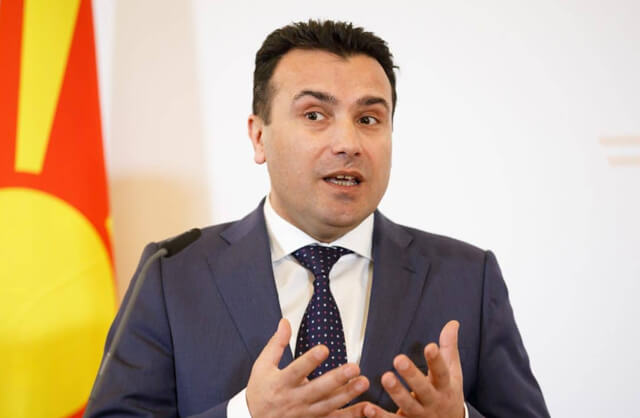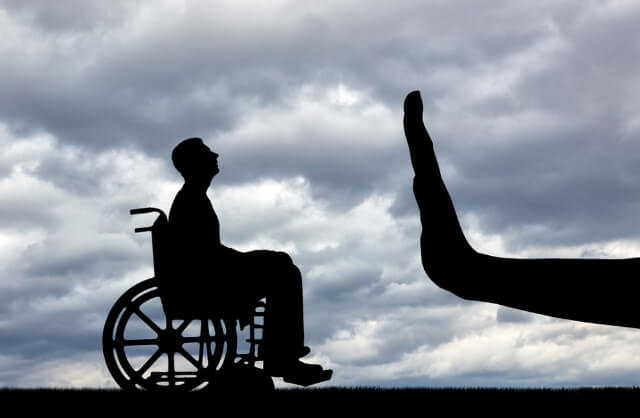North Macedonian Prime Minister Zoran Zaev has come under fire for calling the detained celebrity-turned-businessman Bojan Jovanovski, the central figure in the ongoing “Extortion” scandal, a “faggot”.
His use of the abusive term has been widely condemned by human rights organisations and media associations in the country.
At a celebration on Tuesday night in the capital, Skopje, at which he took questions about the ongoing “Extortion” case, the centre-left Prime Minister said he was firmly committed to the fight against corruption.
But he controversially added that he would not allow “a few criminals, one vain journalist and, I apologize in advance to the LGBTI community, a faggot, to topple the government”.
In his apology delivered later that evening, Zaev claimed that the term he used, “Peder” [Faggot], was a popular colloquial term used to describe a deceitful, sleazy person, and was not intended to refer to anyone’s sexual orientation.
Zaev said he was all for gay rights. “The LGBTI community has my greatest respect. That’s why, before using the word ‘peder’ I directed my apologies,” he said.
“I used this word to describe a character trait and not to describe sexual orientation. Apologies to LGBTI people. I will fight for their rights, as I did so far”, Zaev wrote on Twitter.
The head of North Macedonia’s Helsinki Committee for Human Rights, Uranija Pirovska, said she was not impressed.
“So much for acceptance of differences and respect for them!” Pirovska wrote on Facebook, adding that the LGBTI community would not easily forgive Zaev for uttering such a statement.
Zaev’s language was also slated by media organizations, not only for using the derogatory term to describe Jovanovski – who was well known in the past for dressing up in extravagant women’s clothes – and who is now in detention while the investigation into the “Extortion” case continues.
He was also criticized for calling the veteran journalist and editor Branko Geroski a “vain journalist”.
It was not hard to identify who the Prime Minister was referring to when he used this term. In a series of columns published earlier this summer, Georski was the first to raise suspicions that ruling party officials might have participated in an extortion scheme that was made operational by the now detained Jovanovski.
In his columns, Geroski directly addressed the Prime Minister, insisting that he must act swiftly to curb possible corruption in his own ranks if he wished to retain any credibility.
“This aggressive speech of the head of government, directed towards journalists, can incite violence against our colleagues, additionally endangering their safety and restraining their freedom of expression,” the country’s biggest and oldest media guild, the Association of Journalists of Macedonia, ZNM, said.
It added that “the unprecedented speech towards the LGBTI community does not match the profile of a serious politician and a top ranking state official”.
The Agency for Audio and Audio-Visual Media Services, AVMU, a regulatory body, also condemned Zaev’s statement, saying it was problematic on at least three accounts, for discrediting a journalist for being derogatory to the LGBTI community and for showing disregard the principle of presumption of innocence.
Another media union, the Macedonian Association of Journalists, MAN, also attacked Zaev’s statement as a “direct threat to the media and journalists and against forms of free expression”.
In the unfolding scandal, Jovanovski and an associate, Zoran Milevski, are suspected of extorting money from a third person, the businessman Orce Kamcev, who is himself a suspect in another case run by the Special Prosecution, SJO, codenamed “Empire”.
It is alleged that they took cash from Kamcev in exchange for a promise to help him avoid a jail sentence, or get a lighter sentence, by using their alleged influence with the SJO, which was formed in 2015 to probe allegations of high-level crime.
The affair, which has undermined the SJO and potentially implicated government officials as well, has turned into a major headache for Zaev’s government.
It came to power in 2017 on promises to restore the rule of law and deal firmly with past corruption affairs linked to the former government of Nikola Gruevski.
This is the first time Zaev has personally crossed swords with the LGBTI community, which has previously praised him for implementing good practices.
During his term in office, the government has changed the widely criticized Law on Prevention and Protection from Discrimination, passed by the previous government, to include sexual orientation as one of the premises of discrimination. Earlier this year, the government also supported the first ever Pride Parade to be held in the capital.



